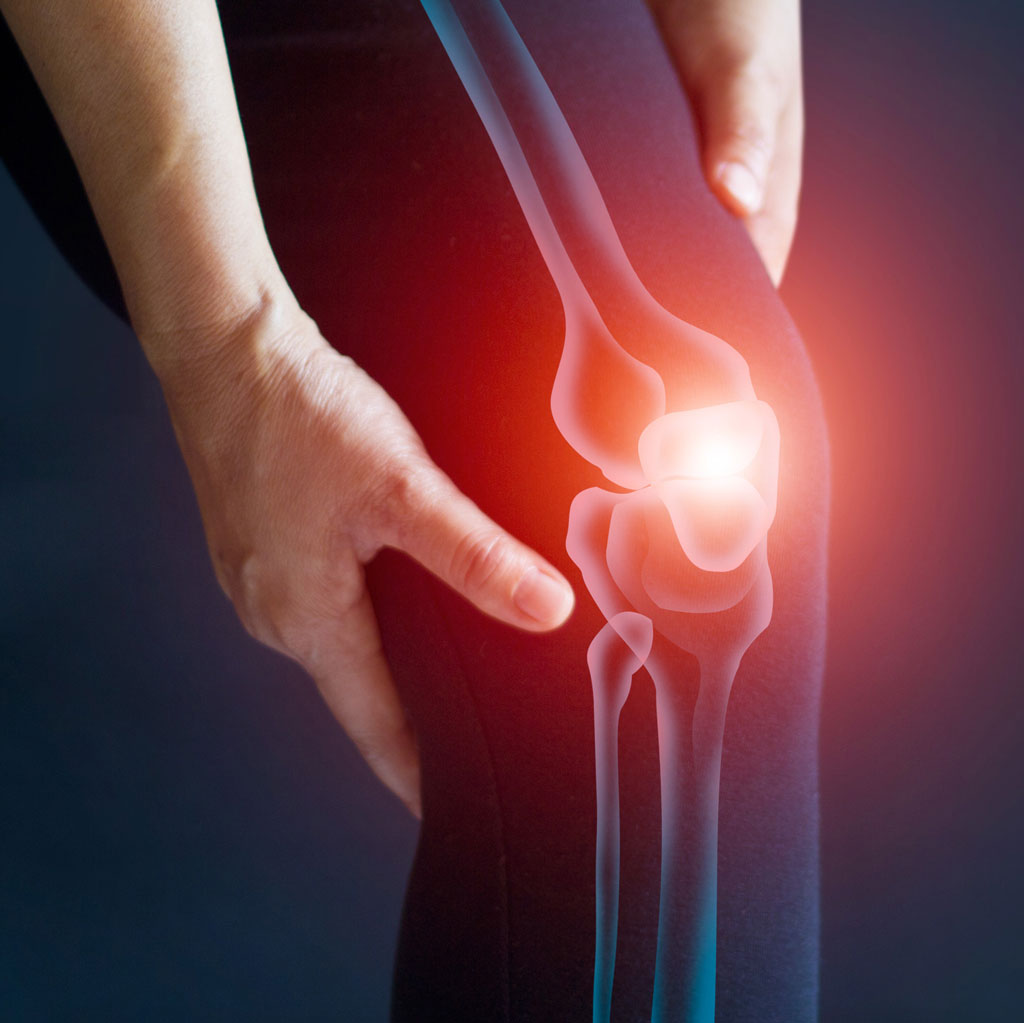Millions of Americans suffer from knee pain caused by a condition called osteoarthritis (OA). When the pain is mild to moderate, medications are commonly prescribed. However, many physicians—and their patients—are reluctant to start a long-term regimen of opioids or non-steroidal anti-inflammatory drugs (NSAIDs) because of various health and addiction risks. When the pain becomes severe and/or leads to mobility issues, total knee replacement surgery is often recommended.
Until recently, it was believed that OA—which is common in older people—was simply the result of “wear and tear” that caused the cartilage surrounding the knee to degenerate over time and eventually disappear. The lack of cartilage caused bone to grind against bone when walking or bending the knee, which was the cause of significant pain.
But in recent years, research has revealed some very interesting information about how osteoarthritis of the knee occurs and evolves. For example, it is now known that the synovium, the thick band of connective tissues that surround the knee and produce a fluid that lubricates the joint, may show signs of significant change even before visible cartilage degeneration has occurred. In other words, the inflammation and joint deterioration that causes OA knee pain is happening while the cartilage is still mostly intact. And it is this inflammation that is likely contributing to further degeneration of knee cartilage.
In 2014, interventional radiologists in Japan hypothesized that it would be possible to slow down or stop the further degeneration of the knee joint by decreasing the blood supply to the synovium. This could be accomplished by embolizing (cutting off) blood flow through one or more of the genicular arteries. This would also reduce inflammation and decrease pain.
After treating 72 patients (95 knees), the doctors published the results of their genicular artery embolization procedure. It was determined that 86% of the patients experienced a reduction in pain of at least 50%, and most patients no longer needed to take opioid and anti-inflammatory medication six months after the procedure.
Today, and after many thousands of procedures safely performed, genicular artery embolization (GAE) is filling an important gap in the available treatments for OA. On average, pain scores decrease from 8 out of 10 before GAE to 3 out of 10 a week after the procedure. Complications are extremely low, and having the procedure does not disqualify the patient from having knee replacement surgery in the future if it’s needed.
The doctors at PrecisionIR perform GAE in their outpatient center. It is an outpatient procedure, and the patient can return home the same day.
GAE is a good option for younger patients, because the procedure may delay or eliminate the need for surgery down the road. Older patients who may not be healthy enough for total knee replacement or who do not wish to undergo open surgery may also qualify for this procedure.
For more information about GAE, or to set up a consultation, please call 947-228-5500.

